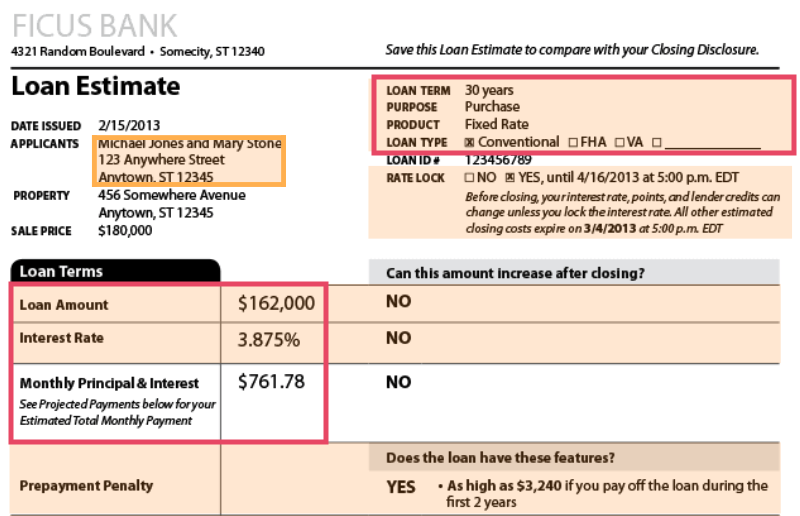If there is no equity in the home, then I would presume she would allow them to take the house if you or any other successors do not wish to keep the home at a reward of. They would organize to take the home either by Deed in Lieu or through foreclosure however Deed in Lieu is much better for the lender too.
We have actually seen borrowers who obtained more in 2005 2007 than their houses are still worth today. That does not make the loan a bad loan those customers got more cash than their house is presently worth and were enabled to reside in their houses for 7 9 years without having to make a single payment and now that the loan is greater than the existing value of the home, they are not needed to pay one cent over the current worth toward the reward of the loan.
A number of them paid interest on loans that were well above the existing worth of the houses when the worths dropped and some paid till they might not pay any longer and then they had no house to live in anymore and no cash to start over. Your mom was guaranteed a house to live in for as long as she wanted/could and didn't need to pay any regular monthly payments for the entire time she lived there (simply her taxes and insurance) (what lenders give mortgages after bankruptcy).
Your mother has actually made no payments on her loan for the last 9 years. Please forgive me; I am not insensitive to your mommy's scenario (how to compare mortgages excel with pmi and taxes). It simply was not the reverse mortgage's fault that the entire economy broke down and that residential or commercial property values dropped. I think I just take a look at it a various way, thank goodness mama had a reverse mortgage and not a forward mortgage that might have needed her to lose the house earlier without the protections that she has had.

She can move timeshare weeks 2018 out at her leisure (another benefit of the reverse home loan) and then once she is out and you have actually moved all of her personal belongings if none of the other member of the family want the house, just call the servicer and inform them she is out. They will transfer to take the home back and you won't even require the support of a lawyer. after my second mortgages 6 month grace period then what.
Facts About How Can Mechanics Leins Achieve Priority Over First Mortgages Uncovered

A "non-borrower" is a person who resides in the house but whose name is not on the loan files. Usually, the non-borrower should move when the customer passes away unless HUD standards qualify Have a peek here them to remain. A "co-borrower" is a person whose name is on the loan documents along with the property owner (candidate).
The sharp slump in the property market has impacted countless Americans, and seniors are one of the groups most impacted. This is especially real of seniors who have so-called "reverse mortgages." This kind of home mortgage can potentially be an excellent way for individuals over the age of 62 to get cash out of their homes.
Reverse home loans are not new. But older property owners are significantly turning to them to improve their circumstances later on in life, especially throughout a down economy. These types of home mortgages, also called House Equity Conversion Mortgages (HECMs), permit people to withdraw a few of their house's equity and receive it as a swelling amount, in monthly payments, as a line of credit or a combination of these options.
House owners eligible for reverse mortgages must be at least 62 years of ages and have to own the residential or commercial property or have a minimal exceptional home mortgage. The property needs to be their principal residence and property owners must be without any defaults on federal financial obligations. House owners need to also participate in an informational session about reverse home loans before submitting any HECM loan applications.
Because of a rash of lending institution foreclosures on mainly elderly homeowners holding reverse home loans, the AARP Structure sued the Department of Housing and Urban Advancement (HUD), challenging a guideline that had the result of adding to foreclosures. The rule needed a beneficiary to pay the full home mortgage balance to remain in the house after the debtor's death, even if the quantity was more than the market worth of the property.
The 5-Minute Rule for When Will Student Debt Pass Mortgages
Reverse mortgages can be expensive and confusing for senior homeowners, as they are distinct from conventional home mortgages. Likewise, a reverse mortgage can in some cases diminish all of the equity in the houses if the house owners extend the reverse mortgage over too long of a period. This frequently occurs where the homeowner takes a reverse home loan on a presumption of life span, but makes it through well past the anticipated mortality date.
This has been especially real for freshly widowed homeowners, and some successors of customers, since of lender compliance with an unknown HUD rule that was set up in 2008. Prior to the rule modification in 2008, HUD had followed a policy that debtors and their heirs would not owe more than a home's value at the time of payment.
The 2008 guideline specified that making it through partners, in order to keep their homes, had to settle the reverse home mortgage balance soon after the deaths of their partners. This held true despite whether or not the making it through spouse's name https://zanderwhvn415.skyrock.com/3344314812-How-Fha-Mortgages-Work-An-Overview.html was on the loan, and despite the home's then-current worth.
That scenario, and the associated HUD guideline, is what prompted AARP to sue HUD. AARP formally challenged HUD's action in changing this rule, arguing that it was done arbitrarily by letter, instead of through the needed administrative treatment. The suit even more declared that HUD's guideline change violated securities formerly permitted for widowed partners to prevent foreclosure.
AARP hoped this would prevent more illegal foreclosures from reverse mortgages due at the time of a borrower's death. In April 2011, HUD rescinded the 2008 guideline that required making it through spouses not named on the residential or commercial property's title to pay the complete loan total up to keep their homes. The ramifications of this modification are not yet completely clear.
What Is The Deficit In Mortgages Can Be Fun For Everyone
However it is essential to talk with a knowledgeable property attorney to know where you stand. Reverse home mortgages ought to offer older property owners more financial flexibility, however when they fail this purpose, they can regrettably leave elderly individuals both homeless and defenseless. Senior Twin Cities property owners considering getting in into a reverse home mortgage agreement ought to seek advice from knowledgeable Minnesota property attorneys like Burns & Hansen, P.A. who provides most mortgages in 42211.
In addition, if you already have a reverse mortgage on your house, you must discuss your scenario with a legal representative experienced in these types of home mortgages to make certain you and your partner are secured if one you passes away or if your house loses equity since of the downturn of the realty market.
A reverse home loan is a method for house owners ages 62 and older to leverage the equity in their home. With a reverse home mortgage, a house owner who owns their home outright or a minimum of has considerable equity to draw from can withdraw a portion of their equity without needing to repay it till they leave the house.